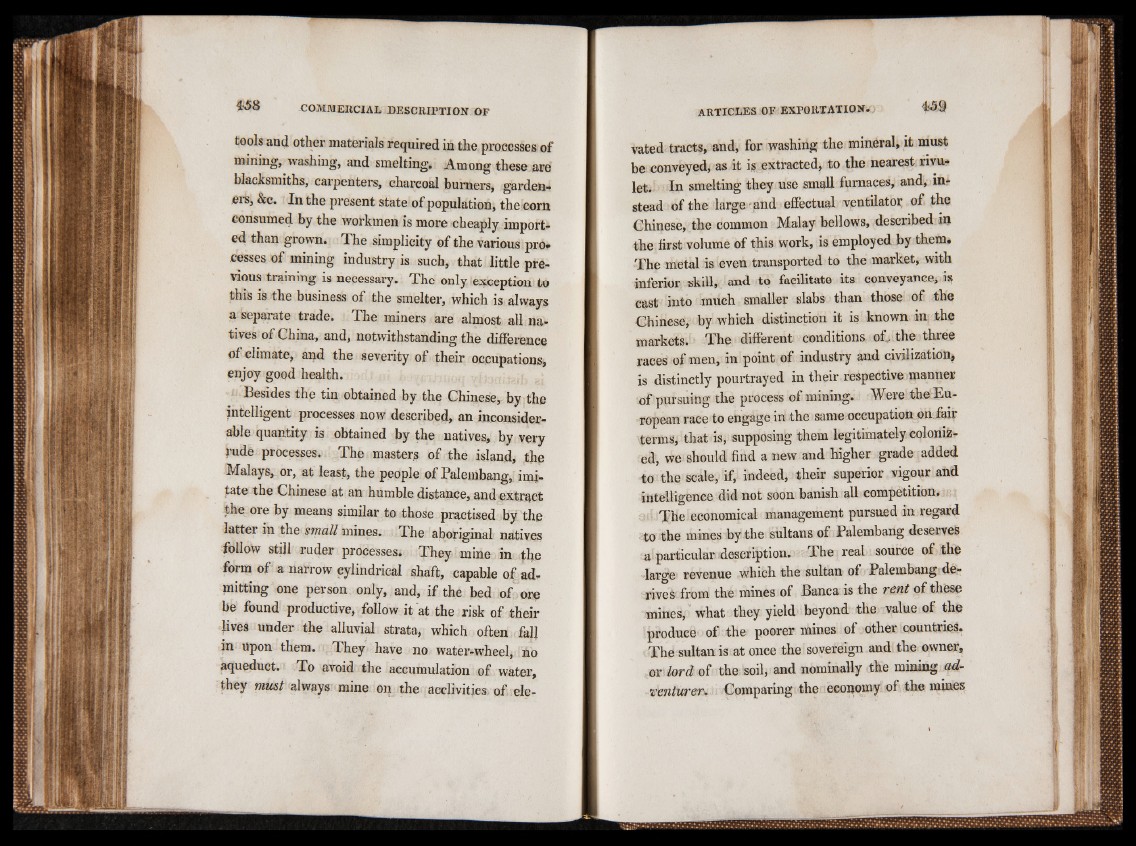
tools and other materials required in the processes of
mining, washing, and smelting. Among these are
blacksmiths, carpenters, charcoal burners, gardeners,
&c. In the present state of population, the com
consumed by the workmen is more cheaply imported
than grown. The simplicity of the various processes
of mining industry is such, that little previous
training is necessary. The only exception to
this is the business of the smelter, which is always
a separate trade. The miners are almost all natives
of China, and, notwithstanding the difference
of climate, and the severity of their occupations,
enjoy good health.
Besides the tin obtained by the Chinese, by the
intelligent processes now described, an inconsiderable
quantity is obtained by the natives, by very
rude processes. The masters of the island, the
Malays, or, at least, the people of Palembang, imitate
the Chinese at an humble distance, and extract
the ore by means similar to those practised by the
latter in the small mines. The aboriginal natives
follow still ruder processes* They mine in the
form of a narrow cylindrical shaft, capable of admitting
one person only, and, if the bed of ore
be found productive, follow it at the risk of their
Jives under the alluvial strata, which often faff
jn Upon them. They have no water-wheel, no
aqueduct. To avoid the accumulation of water,
they must always mine on the acclivities of elevated
tracts, and, for washing the minéral, it must
be conveyed, as it is extracted, to the nearest rivulet.
In smelting they use small furnaces, and, in?
stead of the large- and effectual ventilator of the
Chinese, the common Malay bellows, described in
the first volume of this work, is employed by them,
The metal is even transported to the market, with
inferior skill, and to facilitate its conveyance, is
cast into much smaller slabs than those of the
Chinese, by which distinction it is known in the
markets. The different conditions of*, the three
races of men, in point of industry and civilization*
is distinctly pourtrayed in their respective manner
of pursuing the process of mining. Were the European
race to engage in the same occupation on fair
terms, that is, supposing them legitimately colonized,
we should find a new and higher grade added
to the scale, if, indeed, their superior vigour and
intelligence did not soon banish all competition.
The economical management pursued in regard
to the mines by the sultans of Palembang deserves
a particular description. The real source of the
large revenue which the sultan of Palembang derives
from the mines of Banca is the rent of these
mines, what they yield beyond the value of the
produce of the poorer mines of other countries.
The sultan is at once the sovereign and the owner,
or lord of the soil, and nominally the mining
venturer. Comparing the economy of the mines